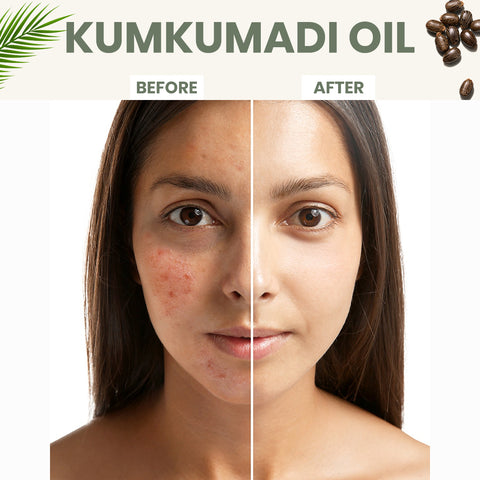Skin Care for Acne-Prone Skin: Causes and Effective Solutions
Acne can be a big bother and a source of irritation and insecurity. Genetics and hormonal changes are among the factors that cause acne, however, eating a certain diet and having a certain skin type can make the situation worse. Identifying the key elements that cause acne is of great importance in developing a skincare routine that is specially designed to deal with the specific needs of skin with acne.
Causes of Acne
Acne can occur when there is excess production of sebum (the natural oil produced by the skin) that ultimately clogs pores and forms pimples. Some foods, such as sugary, dairy-containing, and highly processed products have been shown to promote inflammation and increase oil production on the skin, which could worsen acne. Besides, oily and combination-skinned individuals are more susceptible to acne due to their skin type which produces excessive sebum.
Age might be an indicator of acne too, as hormonal changes during adolescence, or ones during adulthood, motivate increased sebum production, which can cause breakouts. It is necessary to keep all these components into account when introducing a skincare plan for acne-prone skin.
Home Remedies and Diet
- Furthermore, addressing acne-prone skin by adding tea tree oil or honey masks to your skincare routine will help calm your skin.
- Maintaining a balanced diet that includes lots of fruits, vegetables, whole grains, and lean proteins can be essential too in keeping the skin healthy. Foods with a high content of antioxidants such as berries, nuts, and green tea can fight inflammation and promote clear skin.
Foods to Avoid for Acne-Prone Skin
While there isn't one universal "acne diet," certain food groups have been associated with an increased risk of acne development. These include:
- High glycemic index carbohydrates: Simple sugars found in sweets, soft drinks, and processed snacks can spike blood glucose levels and encourage insulin resistance, leading to higher sebum production.
- Dairy products: Milk contains growth hormones that can influence sebum production and aggravate acne.
- Processed meats: Contain saturated fats and other pro-inflammatory compounds that can negatively impact skin health.
Tips for Acne Prone Skin
Acne management involves crucial skin care habits to clear and prevent breakouts. Dermatologists recommend the following key practices:
Good Habits:
- Cleanse Gently: Wash your face once or twice daily with a mild cleanser.
- Post-Exercise Care: Cleanse your face after exercising to remove sweat and dirt.
- Choose Wisely: Use non-irritating products and avoid alcohol-based ones.
- Hair Hygiene: Shampoo regularly, especially if you have oily hair.
- Consistency is Key: Stick to your acne treatment plan without frequent changes.
Bad Habits to Avoid:
- Harsh Cleansers: Avoid using harsh products that can irritate the skin.
- Makeup Caution: Don't overuse makeup, as it can clog pores and worsen acne.
- Hands Off: Refrain from touching your face excessively to prevent bacterial transfer.
- Proper Makeup Removal: Ensure thorough removal of makeup before bed.
- Clean Bedding: Change pillow cases regularly to prevent buildup of oils and bacteria.
By incorporating these good habits and steering clear of detrimental practices, you can effectively manage acne and promote healthier skin.
Skin Care for Acne-Prone Skin
Teal and Terra have various products on the market dealing with acne and are essential for healthy skin.
Their line includes:
Rose & Shea Butter Face Wash: It does wonders for the skin, including helping to clean and renew your skin texture. It battles against acne and saves us from infections It gets rid of blackheads and excess oil without drying out the skin too much thus, tightening the natural moisture.
Neem Face Wash: It firms and unclogs excess oil and particles, leaving skin feeling light as a feather. That is, it helps to guard your skin from infections.
Kumkumadi Tailam: If you are looking to get rid of acne as well as fine lines along with getting a glowing supple skin then, this product is for you.
To sum up, acne-prone skin should be managed holistically, considering both external and internal factors that contribute to skin well-being. By fully grasping what causes acne, creating a tailor-made skincare routine with Teal and Terra's products, following tips for different skin types, adding home remedies, eating a balanced diet and heeding dermatologist’s advice, you can easily control acne and have clearer and healthier skin.
References:
https://pharmeasy.in/blog/7-powerful-home-remedies-for-acne/
https://www.aad.org/public/diseases/acne/diy/types-breakouts
Sample Block Quote
Nam tempus turpis at metus scelerisque placerat nulla deumantos sollicitudin delos felis. Pellentesque diam dolor an elementum et lobortis at mollis ut risus. Curabitur semper sagittis mino de condimentum.




